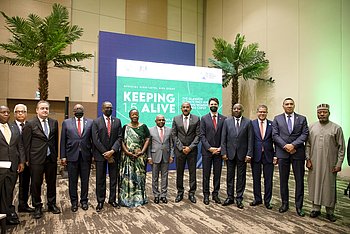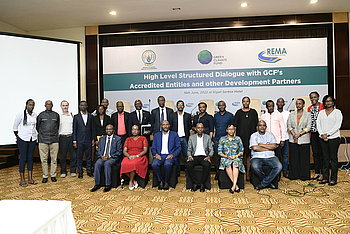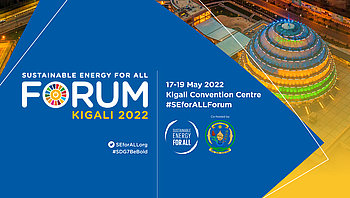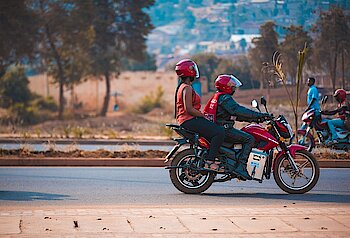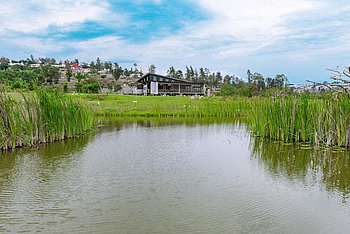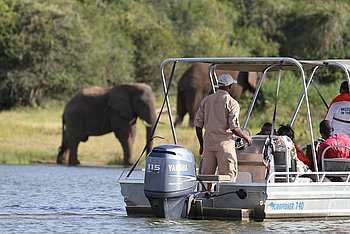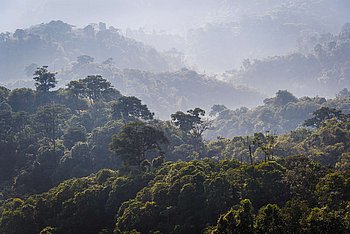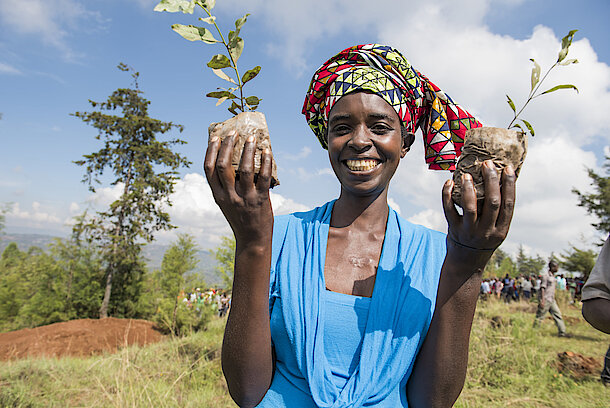
Why Women’s Consideration is a Key in battling climate change impacts?
The livelihoods of billions of people throughout the world are highly impacted by climate change, despite efforts to reduce its hazards. This is manifested by floods, droughts, windstorms, water scarcity, diminished biodiversity, and other extreme weather occurrences that are having an adverse effect on their lives. These extreme weather events have impacts on human well-being by creating food shortages, contaminating water bodies used for consumption, livelihood, or recreation, and damaging vital infrastructures.
Despite the fact that climate change affects all levels of society, the severity of these catastrophes varies. Several studies show that women and girls are particularly vulnerable to the effects of climate change, most likely because they rely heavily on land and natural resources for household food and income generation.
Climate change exacerbates gender disparities, making it more difficult for women to achieve financial independence, and leaving them not being more resilient to climate change impacts.
Women are highly affected by climate change, because of their domestic roles which often make them predominant users of natural resources such as water, firewood and forest products. They have a heavier labour load when these resources become more limited, which may cause them to experience additional hardship. For example, women predominate in the world's food production (50–80 percent), but they own less than 10 percent of the land. During extreme weather such as droughts and floods, women tend to work more to secure household livelihoods and duties. As a consequence, it influences crop yields as well as hunger, nutrition, and loss of life than men.
Even though women face those challenges, they are not effectively involved in addressing climate change. In this respect the exclusion of their voice makes their knowledge in the environment and hardship they face to be not fully resolved. Therefore, countries should invest in gender action plans for climate change that are participatory, multi-stakeholder, and multi-sectoral since these can help build integrated solutions to cope with social inequality in the face of climate change. This is supported by the Intergovernmental Panel on Climate Change (IPCC, 2022) report that upholds the fact that climate change effects are not gender neutral. It further notes that women and children are among the highest-risk groups.
How can women be fully engaged in addressing climate change?
It is worthy noting that for addressing climate change effectively, it is important to recognize that women are affected by climate change differently. Women continue to bear a disproportionate burden from the adverse impacts of climate change, like during disasters women face heightened real-life challenges such as being vulnerable to different forms of sexual and gender-based violence as they are the ones who travel miles and miles during dry seasons to collect household water and firewood.
Despite some progress having been made over recent years, the gender perspective needs further work to be fully integrated into the processes of formulating and implementing policies and actions on the ground.
There must be policies and plan in place across all sectors that take into account women's perspectives in numerous subject areas, such as health risks; promotion of education for women and girls in science, engineering, technology, and other fields related to the climate change, as well as enhanced access by women to and control over land, water, energy, and other natural resources.
What could be the importance of considering women
As the aim of the paris agreements is to strengthen the global response to the threat of climate change by keeping a global temperature rise this century well below 2 degrees celsius above pre-industrial levels and to pursue efforts to limit the temperature increase even further to 1.5 degrees celsius as well as to increase the capacity of countries to deal with the impacts of climate change.
As 70% of the world's 1.3 billion poor people are women, and 40% of the poorest households are headed by women. Regardless that they are most vulnerable to climate change, during severe extreme weather events, women handle the majority of household duties. In developing countries women occupy 70% of farming activity which feeds more than 50% of developing countries population.
Women have to be considered in all climate change measures especially in mitigation and adaptation to reduce their vulnerability and build resilience in key sectors, such as water, agriculture and human settlements. If women are empowered in these sectors the community and society will benefit. In addition, women's challenges have to be integrated in project development to ensure their problems are addressed during project implementation.
Progress in engaging women in addressing climate change in Rwanda
People have different adaptation needs depending on where they live, how they sustain their livelihood, and the role they play in their family and community. In this regard, Rwanda mainstream and integrates gender in the environment and climate change sector. For instance, there are different policies and strategies that were established to ensure that women and girls are considered in all sectors. As of now, Rwanda is the first country in the world with a female majority in parliament with 61.3% in the Chamber of Deputies and 36% in the Senate.
Rwanda National Environment and Climate Change Policy has put in place mechanisms to develop and promote green technologies in all sectors of economic development and facilitate appropriate climate change mitigation and adaptation technological development, including strategies to increase human capacity, especially amongst the youth and women. This policy also urges and encourages effective involvement of women and youth in environmental and climate change management, intervention, and decision-making as essential.
Topics
More posts
COMMONWEALTH LEADERS MEET IN KIGALI TO DISCUSS WAYS OF KEEPING THE 1.5-DEGREE GOAL ALIVE
The Governments of Rwanda and the United Kingdom together with the Presidency of the United Nations Climate Change Conference (COP26) have on 23rd Jun…
Climate change as key issue that are of special in the CHOGM – 2022 discussion
The effects of climate change are being felt throughout the Commonwealth, with some Member States experiencing climate change impacts, which is a…
Public and Private sectors, Green Climate Fund accredited entities and development partners joined in the structured dialogue
On 16 June 2022 at Kigali Serena Hotel, the public, private sectors, Green Climate Fund (GCF) accredited entities and development partners have joined…
REMA AND HIGHER LEARNING INSTITUTIONS AGREED TO ENHANCE PARTNERSHIP IN ENVIRONMENT AND CLIMATE CHANGE RESEARCH
As part of the “World Environment Day Celebrations”, Rwanda is holding its annual National Environment Week. The week begun on Saturday 28 May by the…
Global Leaders Convening Tomorrow at the SEFORALL Forum in Kigali for Landmark Event on Energy and Climate
At a time when far greater action is needed to fight climate change and to reduce global inequalities, the 2022 SEforALL Forum will commence tomorrow,…
Six ways Rwanda is building climate resilient transport systems
Over the last decade, Rwanda has invested in building efficient and resilient transport systems. Guided by the country’s Green Growth and Climate…
Six ways Rwanda is being water wise in the face of climate change
Access to water underpins public health and is critical to sustainable development. Availability of water is also critical for any country’s…
Five ways Rwanda is investing in ecotourism and conservation
Rwanda is located in the Albertine Rift, a region considered especially rich in biodiversity, making it ideal for conservation and ecotourism. From…
How Rwanda is putting its forests first in the fight against climate change
In 2011, Rwanda introduced a Green Growth and Climate Resilience Strategy to guide the country to become a developed, low carbon economy by 2050.…
